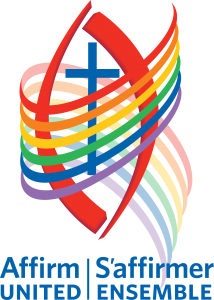Psalm 126
When God restored the fortunes of Zion, we were like those who dreamed. Our mouths were filled with laughter, our tongues with songs of joy. Then it was said among the nations, “God has done great things for them.” God has done great things for us, and we are filled with joy.
What incredible words of Joy to hear this morning. Words of memory and celebration looking back on a time when despair turned to laughter, when a lost and hopeless community was suddenly found and returning to life again. It’s an incredible testament to God’s presence in the life of God’s people… except (don’t you hate it when there’s an exception to joy?) this isn’t purely a psalm of thanksgiving. About half way through the poem, there is a switch… “restore our fortunes again, O God.”
With a bit of an abrupt turn, the people are calling out to God – “God, you’ve done it before, you’ve brought joy out of despair – we really need you to do it again. Help us.” They absolutely remember the joy, but there is also a deep sense of longing in the psalm. Here gratitude and deep yearning exist side by side.
I have a feeling that this isn’t an unfamiliar feeling for many of us. Many live in this place of gratitude and longing which is usually brought into focus on a day like Thanksgiving. We gather with thankful hearts, cognizant of the good and beautiful things of our lives, grateful for the sharing of good food and good company amid the beauty of autumn. But for some of us, this season is complicated. We are deeply aware of empty chairs at the table, the smaller feast set out, the change in life. There are losses and changes that ache. There are worries that don’t take the day off.
Okay, now, I admit this isn’t the most hopeful way to start a thanksgiving sermon, but stay with me. Don’t start thinking about turkey cook times and table settings… Psalm 126 insists, confirms, reinforces that gratitude and grief can indeed share the same breath. This isn’t news to you. I’ve said this before. Joy and sorrow, happiness and sorrow, celebration and concern can and do tangle together in the living of life. What I want you to hear is that the Psalmist doesn’t wait for everything to be perfect before breaking into song. The Psalmist starts with thanksgiving while still sowing seeds in tearful soil, hopeful that in time, God’s time, joy will bloom again.
That trust – a daring to hope even when the idea of holding on to hope seems idiotic is what is at the heart of the intrinsic hope that we’ve been talking and thinking about. Author Sarah Bessey calls it “cultivating hope on purpose”. She admits that “cultivating hope can feel like foolishness in this economy. And yet. And yet. And yet.” (fieldnotes for the wilderness, p.69). This kind of hope, hope in the face of foolishness, doesn’t just arrive on its own like an unexpected package, Bessey says. We choose it and we tend it. You dare to keep hope at the center of your being, informing your decisions, the actions you take the, and you fight for it.
Remember this intrinsic hope moves beyond silver linings and “everything happens for a reason” blind optimism. This is the hope that takes suffering and injustice seriously, that takes the flourishing of all of creation seriously despite the outcomes. This is a hope you’ve worked for. “You hope turns over tables in the Temple. Your hope is how you vote and march and protest and… make good trouble. Your hope sings songs and sets another plate at the supper table, braids the hair of children and writes poems…your hope isn’t an escape hatch or an inoculation against struggle or a way to avoid being human… this is hope with lines on her face and silver in her hair, hope with strong arms and steady feet rooted and planted in the love of God… this is hope that rises each morning and makes the coffee and keeps freaking going.” (p.71)
In her reflection for Rosh Hashanah, Rabbi Freidson explains that the Hebrew word for hope is Tikvah. But its more than that. You see, the first definition of Tikvah is “stretched out cord or rope” and the second is “hope.” The root word is “kaveh” which means “to stretch” or “the tension of enduring or waiting.” Ancient minds saw that stretched out cord as a metaphor – hope waits in tension but does not break. In essence “hope is a rope.” It’s a rope we hold on to as we face reality. Each time we reach for that rope, we gain strength in our hands, our hearts, our faith. Rabbi Freidman writes: First, we have hope. Then, we face reality which requires strength and courage. Then we continue to hope.
Its about steady hope, like a hope rooted in the knowledge that the God who tends the birds of the air and the lilies of the fields, also tends to us. Allowing us to live and act out of our sense of hope, giving the world glimpses of compassion, community, justice, and abundance.
This is a kind of thanksgiving – a kind that goes beyond gratitude for what we have towards a trust in what God is doing still. God has done, God is doing, God will do. It’s the kind of thanksgiving and hope that is almost impossible to cling to as we look at the world – climate crisis, wildfires, violence, inequity, genocide, corruption. It almost feels reckless to hope. But this intrinsic hope, this hope that we cultivate and tend to is what allows us to plant seeds. It is what motivates us as a community of faith to reach out, to serve meals, to advocate for creation. It is what helps us know that love is stronger than fear, and that we can be surprised by resurrection moments.
So, as we name what we are thankful for this day, I challenge you to name your hopes as well. Let us hope for healing where there is hurt. For community where there is loneliness. For courage where there is weariness. And for Joy- joy that is not shallow or fleeting, but born of Gods steadfast, unlimited love.
Cling to that rope that is hope, friends. Know it deep in you, and tend it well so that it keeps freaking going. May it be so. Amen.


